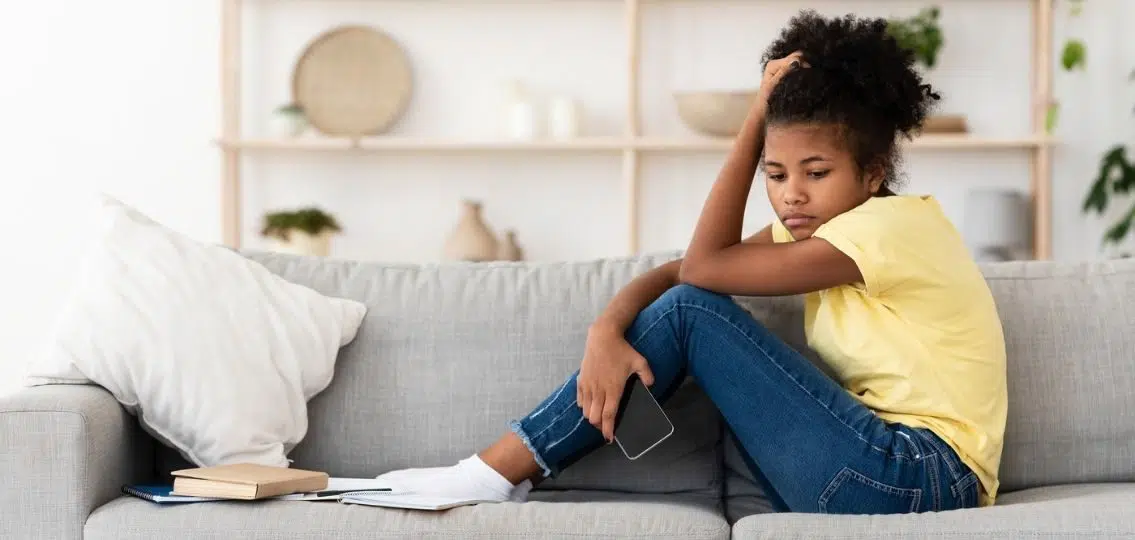When our children are very young and learning new skills—like walking and talking and how to share—we understand they’re going to fail sometimes. And so, when they’re struggling, we’re kind to them as we gently guide them to learn from their mistakes. But somehow, when our children reach adolescence, we forget that our children are still learning critical skills. We forget to expect that they’re going to make mistakes. Worse, we forget to react with kindness.
I’d like you to take a moment to think back to when you were a teenager. Did your parents ever yell, criticize, or complain about your behavior and mistakes? How did it feel when they did that? Did you feel disconnected from them? Did it feel like they were against you? Now imagine how it would have felt if your parents accepted that sometimes you messed up. Do you feel more connected to your parents now? Do you feel like you can trust and open up to them about your problems?
Responding to our teenager’s mistakes with empathy and understanding is just as important now as it was when they were younger. Showing our teenagers how to recover from those failures without blame, shame, or criticism teaches them personal responsibility and allows them to see that failure provides a pathway to growth.
The hard part is actually doing it. Let’s get some practice reacting with empathy and understanding by diving into an example:
Conscious Parenting In Action
Another broken promise.
15-year-old Katherine has lots of homework and a mid-term test scheduled the next day. After soccer practice, she begs to go spend time with her friends. She promises her mother, Sue, she’ll complete her homework and study for the test as soon as she returns home by 5:30. Katherine doesn’t return home until 8:00, and now she’s too tired and too hungry to do her homework and study.
Sue feels that Katherine violated her trust by not keeping her end of the bargain. Sue regrets allowing Katherine to go out and recognizes she did so to avoid a big argument. Since Katherine now can’t study, Sue is afraid that she won’t complete her homework and will do poorly on her midterm exam. Sue is feeling angry and anxious. She’s also feeling irritated because this situation has happened before.
Sue’s knee-jerk reaction is to say: “I told you so.” “You did it again.” “You can’t be trusted.” She recognizes those reactions all stem from her own anger and anxiety and they’re largely due to wanting to change Katherine’s behavior pattern. She also has learned from prior experience that no amount of yelling, criticizing, or lecturing will change what happened or meaningfully alter Katherine’s future behavior. Sue knows that if she says any of those things, she’ll provoke a defensive reaction from her daughter and put distance between them. She wants, instead, to be more mindful in her approach so she can foster connection and help her daughter see her way out of her destructive behavior pattern. What should Sue do?
Acceptance is Key and Silence is Golden.
First, Sue needs to accept the situation exactly as it is. She needs to surrender to the unpleasant reality that in all likelihood Katherine won’t complete her homework or be prepared for her test. Yelling and blaming will not get the homework done or the test studied for. Reacting like that would merely foster disconnection and resentment. Instead, if Sue really wants to follow a mindful approach, she needs to begin with silence. Sue needs to observe her own feelings of anger and anxiety without judging or reacting to them. By simply observing and noting their presence, she can begin to detach and release those feelings rather than use them as a trigger to lash out.
Respond… Don’t React.
Now that Sue has disconnected from her own fear, she can connect with Katherine by taking into account her daughter’s immediate needs. Katherine had been out of the house for 12 hours. She went to school all day, attended soccer practice, then visited with friends. She was hungry, exhausted, and overwhelmed. Sue’s mindful response would include providing food and comfort.
Let the Consequences Flow.
Now that Sue has satisfied her daughter’s immediate physical needs, Katherine is more likely to express her concern about not being able to do her schoolwork. At this point, Sue can listen without trying to fix the problem. She can allow Katherine to go to school having not done her homework, and unprepared to take her exam, as these were the natural consequences that flowed from her mistakes. Katherine can face the consequences of her actions having no one else, including her mother, to blame.
The Blame-Free Zone…
If Katherine’s grades suffer because of her actions, she’s more likely to ask for help from someone who understands that failure is part of learning. If Sue accepts that her daughter is still trying to figure things out and she remains neutral about it, then Katherine is more likely to ask if they can work together to create solutions.
…Fosters Connection!
Bottom line: our teenagers are going to make mistakes, sometimes big ones. The parent who tunes in to their own anxiety, controls their fears, and releases their agenda, can create a deep connection with their children allowing them the space to find their voice and their way.




